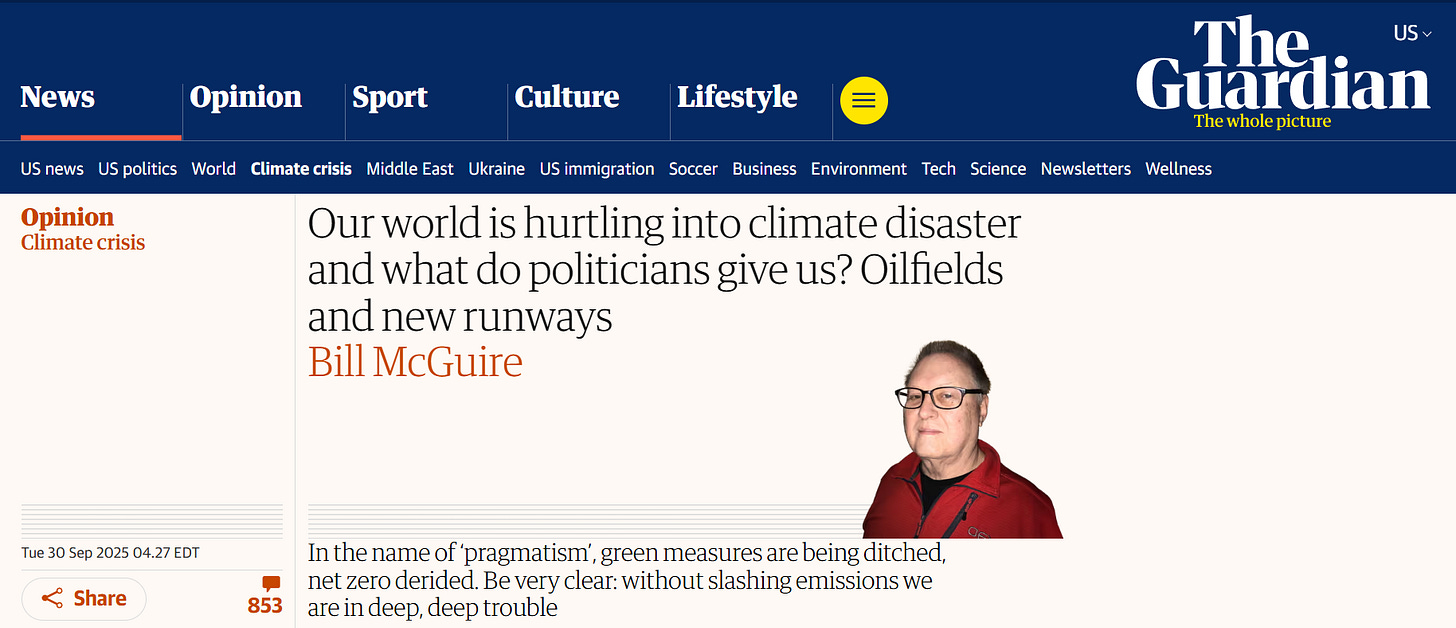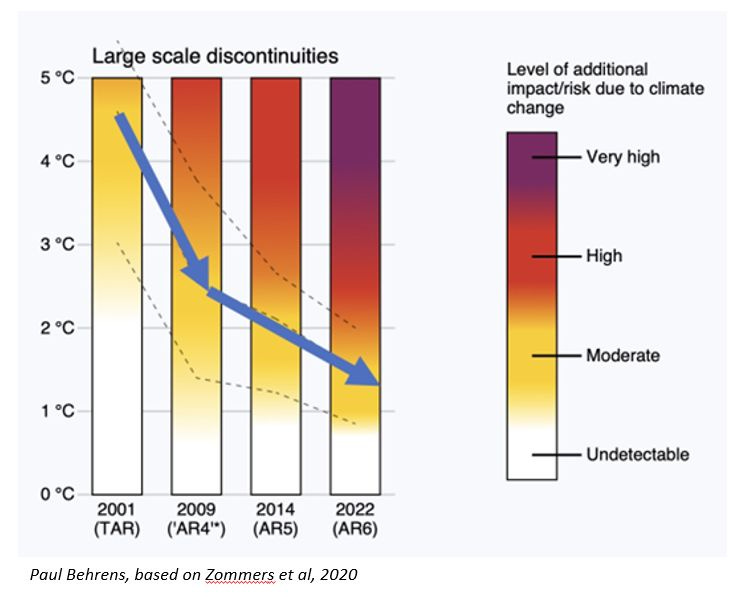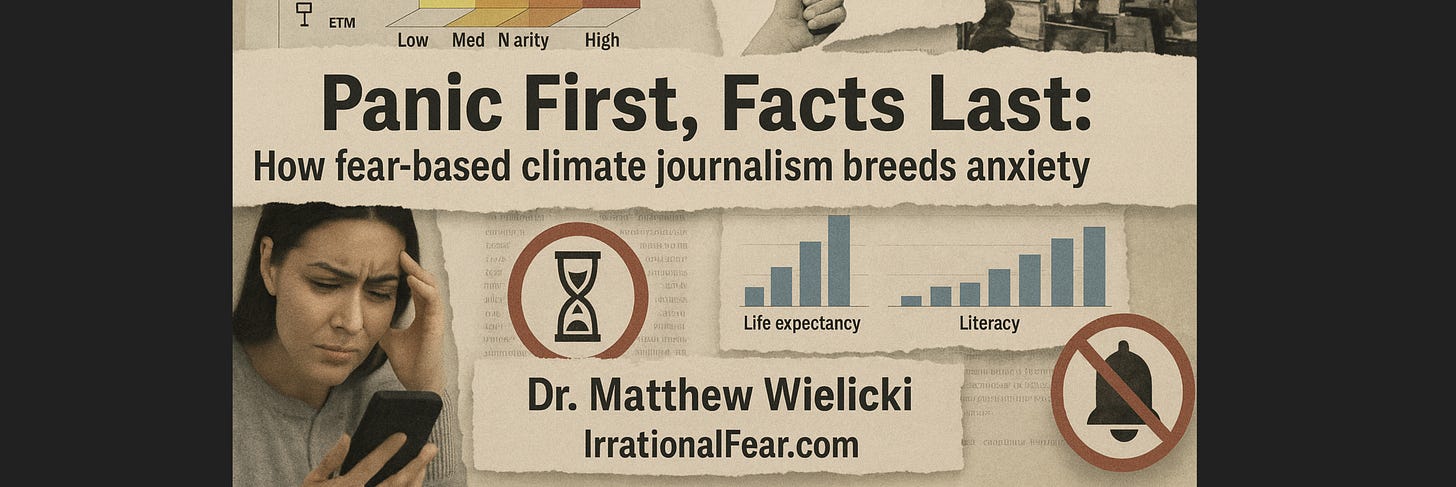Panic First, Facts Last
How fear-based climate journalism breeds anxiety.
I named this publication Irrational Fear for a reason. The most powerful institutions in our culture: legacy media, activist scientists, and a monoculture in academia, sell fear first and facts last. The damage is visible in young people. Climate catastrophizing is now a feature, not a bug, of the message machine, and the evidence is plain: catastrophism elevates anxiety and depression, while knowledge brings that anxiety down.
The Guardian just offered a pristine specimen of the panic industry. Bill McGuire’s column claims we are “hurtling into climate disaster,” declares a 1.5 °C threshold already crossed, and insists that at 2 °C the world will lose a quarter of its economy while billions die.
A recent report by the UK Institute and Faculty of Actuaries and Exeter University forecasts that a 2C global temperature hike by 2050 would see a 25% collapse in the global economy and 2 billion people dead.

None of that is supported by the record that actually surrounds us. During the modern warming era, the human condition has improved across almost every measurable dimension: longevity, literacy, poverty, and access to energy have trended in the right direction. That is not a controversial statement; it is a summary of data from the last two centuries.
Even the thresholds themselves keep slipping. Successive IPCC reports have re-tinted their “tipping point” gauges so that what once counted as high-risk at 4–5 °C is now painted as high-risk near 1–2 °C. The effect is simple: the crisis is always “now,” even when observations refuse to cooperate. I documented this drift in Shifting Lines in the Sand.

If you want to understand why the messaging gets louder while lived reality mostly improves, consider what the mental-health literature already shows: environmental knowledge is inversely associated with climate anxiety. The more people learn, the less the apocalypse seems to stick. That is exactly the opposite of how panic media operate.
This isn’t just sloppy communication. It becomes dangerous politics. When media and academics declare opponents “murderers of the planet,” unbalanced people eventually take the next step. I have documented how elite institutions normalize dehumanizing rhetoric and then excuse violence when it lands on the “right” targets.
The Guardian piece is not journalism. It is an accelerant. It spreads panic, shifts goalposts, and frames political opponents as existential threats. That posture has predictable consequences. We all saw the double standards around recent assassinations and campus reactions; some commentators did not endorse the acts but worked overtime to explain them away. That is a moral failure, and it is a pattern.
If you want receipts, keep reading. I will put Bill’s claims next to the data, show exactly how the IPCC’s risk bands were moved, and walk through why the last 1.5 °C did not produce economic collapse or mass death—in fact, prosperity and safety expanded. I will also trace how elite messaging launders contempt into permission for violence and explain why accountability must include the publishers who sell panic. Subscribe to unlock the full analysis and the archive of 400+ deep dives that separate data from dogma.



